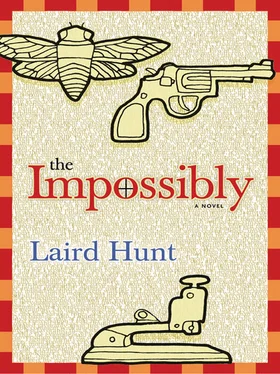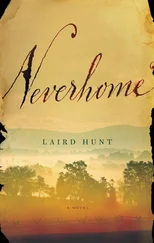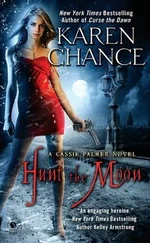Sadness the first powder to be abided upon waking. It may reside in tools or garments and can be eradicated with more of itself, in which case the face results as a placid system coursing with water, heaving.
— BEN MARCUS, The Age of Wire and String
“To the right,” said the peasant. “That will be the road to Manilovka; but there is no Zamanilovka. That’s what it’s called, I mean to say, its name is Manilovka, but there is nothing like Zamanilovka here.”
— GOGOL, Dead Souls

NOT LONG AFTER THAT IS WHEN I LEFT. They came one night, shook my hand, and gave me a ticket. The next evening I was on a train, and late that night I got on a boat. The passage took several days. The captain would make announcements over the intercom. Then one evening at dusk I saw a great white city and the boat docked. In addition to the ticket, they had given me an envelope. In it I found a stack of bills, an address, and a set of keys. A taxi dropped me off on a poorly lit street in front of a building draped in black netting. The downstairs lock turned easily. I went up a flight of stairs. Another. The door was open. Come in, a voice said. The room I went into was large with high ceilings and several windows. A woman was sitting at a small round table under a handsome metal floor lamp. She had very high cheekbones. She looked very young. As I entered, she placed her hands on the table and stood. My instructions were to verify your arrival, she said. She walked past me. She had a slight limp. She said something I couldn’t catch and was gone.
The apartment was well-furnished, but lacked a view — the three windows in the main room looked out through the netting onto a high white wall and the bedroom window gave onto an airshaft. The kitchen was painted bright yellow and had counters long enough to recline on. I know this because I reclined on them. One day a group of individuals, associates they called themselves, came in and found me on one. You won’t get anywhere like that, they said. Get anywhere with what? I said. Several days went by. I sat at the table. Also I sat on the various sofas and couches, as well as on several of the chairs. The dining room I mainly used for pacing, and the den I entered only once. It was mainly in the early evenings that I ate the food they left in the refrigerator — meat, soup, boiled vegetables, soft, salted cheese. Dogs barked all night and sometimes kittens mewled. In the early mornings I slept.
After a week, at dusk, I ventured out. As I walked by them, the walls, if they were white, went gray then dark gray then the streetlights came on. The city was reasonably well-lit. My street, of course, was not very well-lit, but most of the city was. Or not most — much. Significant parts of it, I discovered, were full of shadows and haphazard sounds. One wondered where they came from. Where they went. But generally, as I say, was the fact of more or less adequate civil illumination.
So in the late evenings I walked. Past structures with or without balconies, across empty plazas, under crumbling arches, and through the public gardens where old men sat on benches under tall, flowering trees and young men lurked in the bushes. There were also lovers on the benches in those curious configurations, and the sound and clipped shadows of night birds, and usually, after walking for a time, I would stop at a small fountain, take off my shoes, submerge my feet, and let the cool water ease the swelling. There were many narrow, twisting streets in the city and any number of large, rocky eminences, and I soon discovered small paths that led by houses where old women sat beneath birdcages remembering, I imagined, the old men. If I went far enough, and a few times in the early going I did, it was possible to leave the city and to walk out into the surrounding hills. But in the hills, of course, there were no lights at all, and the paths were treacherous for an old man like me, lit only, as they were, by the moon.
Often, during this period, when I returned from my walks, I would find that the refrigerator had been filled and that the apartment, if not cleaned exactly, had at least been dusted and sprayed. Different scents were used for this spraying. The pine scent was far and away my favorite. The citrus, used liberally until I put out a note, I could not tolerate. Much of it, then, was what I had asked for — the food, the furnishings, the windows, the large bed, some kind of a cleaning crew, the city by the sea. I had, of course, requested a view and for all the streets of the city to be well-lit. I had also requested and not received a certain amount of reading material, a copy of my file, and a large handgun. Generally though I was satisfied. I had heard stories of retired assets receiving none of what they had asked for, even assets who had enjoyed relatively glittering careers and had never been disaffirmed. I, of course, had been disaffirmed twice. Although I should probably say straight away that the second disaffirmation, upon review, was found to have been unmerited and the following note was placed in my file, which I still do not have—“granted: the motion to vacate judgment.” It was perhaps, I more than once speculated as I sat under the handsome floor lamp with its gold trim and metallic brown shade, because of this reassessment, this determination that my actions had, in fact, been justified, that so many of the requests I made in my retirement interview were provided for. Perhaps.
The days, as I discovered, were nearly as pleasant as the nights. The white city, with its orange roofs and endless terraces, shimmered in the sun or glimmered in the proxy of it. As I have noted, the city was surrounded by hills and broken up by rocky eminences, on one of which stood ancient battlements topped by a columnar structure, in the center of which sat a crane. There were endless motorized vehicles in the streets, and large insects in the air, and the pine trees shared the earth beneath the pavement with the root systems of palms and various blossoming fruit trees. Everywhere, too, there were rusty antennas and white satellite dishes and establishments where it was possible to sample grilled meats and various aquatic comestibles and to drink chilled resinous wines. Also worth noting were the numerous unfinished structures, structures that had stood unfinished for many years and that, I was told by a garrulous individual on a bench one evening, would continue to stand unfinished for many years — ruins, as it were, in reverse. No one in this city wore hats or capes, although sunglasses were nearly omnipresent. When I say that no one wore hats, I am of course referring to a certain variety of hats, or, rather, to a certain way of wearing them. I had requested that too. I no longer, I had said in my interview, wish to see or wear hats or capes. What about sunglasses? I don’t care about sunglasses, I had said. Also, I had given up on shorts. I had, before the reversal of my second disaffirmation, which was largely passed at the bottom of a not-quite-dried-up well, lost a tremendous amount of weight — of which, admittedly, there was much to lose, but still — and had found, upon my release, that none of my lovely pairs of short pants fit any longer. Lovely is perhaps overstating it.
And yet I rarely went out during the daytime. In fact, once was enough. After a bout of unsuccessful swimming at a beach not far enough away from the city and its septic mechanism, I saw what I have already set down and I saw some other things, including: a cat simultaneously hissing and relieving itself on a broom and a three-legged, sore-infested dog chasing a pigeon that could not completely fly and had no feet, and after these and other observations, once home, I found myself exhausted, unwell, unable, in fact, to leave my apartment for a considerable time, and so decided to restrict my circumambulations, insofar as this was possible, to the dark hours. This was possible — it has been fifty-five days since I was last outside in the daylight, and while at times the stray lines of light that make it through the netting and the shutters to fall across my floor and, occasionally, across my hands or arms, are able to elicit certain emotions and to stimulate certain memories, I find I am happier this way.
Читать дальше











![Беар Гриллс - The Hunt [=The Devil's Sanctuary]](/books/428447/bear-grills-the-hunt-the-devil-s-sanctuary-thumb.webp)

